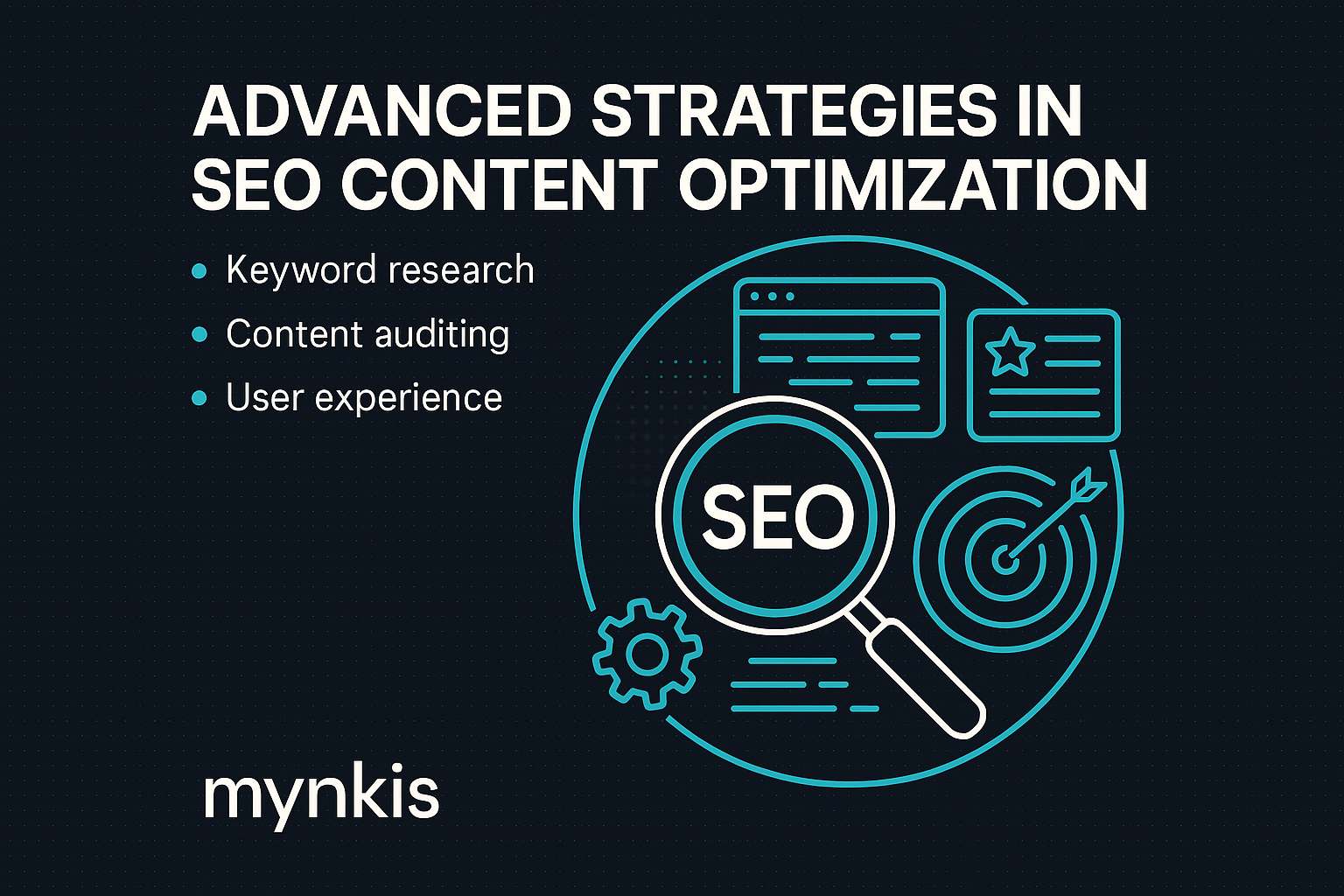Schedule a Demo
When diving into the world of SEO, it's critical to start with the basics. Search engines like Google operate using complex algorithms designed to deliver the most relevant content to users. At the heart of these algorithms are several key factors: relevance, quality, and user engagement. In my years assisting enterprise clients with their digital strategies, I've found that understanding these elements is the cornerstone of effective SEO. Whether you're revamping your internal tools or your customer-facing web portals, these fundamentals remain relevant.
Keywords are the bedrock of SEO strategy. The right keywords can guide your content towards those who are actively seeking it. My approach has always been to start with thorough research, leaning on tools like Google Keyword Planner or SEMrush to find what potential users are typing into search engines. For those crafting custom enterprise software solutions or revamping high-performance websites, targeting terms related to "custom software development" and "enterprise web solutions" naturally fits within the niche. Understanding search intent and matching your keywords to what people are looking for can elevate your content significantly.
In my experience, the most effective SEO strategy revolves around crafting content that provides value. It's not just about stuffing keywords into every available space but weaving them thoughtfully into high-quality articles, guides, or videos. For businesses developing internal tools or customer portals, the content should address specific user needs—think about what an employee or customer really requires from the site. Best practices suggest keeping content readable, informative, and tailored directly to the audience's level of knowledge and expectations.
The details matter in SEO. Titles, meta descriptions, and header tags like
From my perspective, user experience (UX) plays a crucial role in SEO. Search engines have increasingly started to take UX into account for rankings. A site or tool, whether internally used within a large organization or facing customers, should load quickly, be mobile-responsive, and easy to navigate. Poor UX can lead to higher bounce rates, which signals to search engines that your page doesn't meet user needs effectively. This directly impacts the effectiveness of your "custom software development" and "enterprise web solutions" aimed at enhancing productivity and engagement.
Diversifying content types can significantly boost SEO. In my work, incorporating multimedia such as videos, infographics, and interactive elements has shown remarkable improvements in engagement and, consequently, SEO performance. For internal tools or customer portals, consider how explaining complex operations through a video tutorial or enhancing enterprise web solutions with interactive product demos can add value. Every piece of multimedia should be optimized too—with relevant keywords in file names and alt tags to ensure they contribute positively to SEO rankings.
Measuring the effectiveness of your SEO efforts is crucial for continual improvement. I always recommend setting up and closely watching key performance indicators (KPIs) such as organic traffic, conversion rates, and specific keyword rankings for areas like custom software development and enterprise web solutions. Tools like Google Analytics can provide invaluable insights into user behavior and content efficacy. Adjusting strategies based on this data ensures that your SEO initiatives remain as impactful as possible.
Backlinks remain a pillar of SEO but acquiring them requires finesse. In my experience, valuable backlinks can be gained through strategic outreach, collaboration with other reputable sites, and creating shareable content that naturally attracts links. For organizations looking to strengthen their standing with content centered around custom software development or enterprise web solutions, contributing guest posts to respected industry blogs or participating in forums can enhance backlink profiles effectively.
The digital world evolves constantly, and so should your content. In my work with enterprise solutions, I’ve seen firsthand the impact of regular content updates on maintaining SEO strength. This doesn’t necessarily mean overhauling everything but keeping information current, removing outdated links, and refreshing visuals or examples pertinent to custom software development and enterprise web solutions. Search engines favor freshness and an updated site demonstrates active engagement with your audience.
SEO isn’t just about higher search rankings—it's also about making your site usable and accessible to everyone. When optimizing content for SEO, a part of the strategy must include addressing web accessibility standards (WCAG). In the design and development of internal tools or enterprise-level websites, ensuring navigation aids, adequate color contrast, and alternative text for multimedia not only aligns with ethical practices but also contributes to broader SEO benefits. Making websites more inclusive tends to correlate with better user experience, which impacts your SEO favorably.
SEO strategies are perpetually evolving as search engines refine their methods to give users what they want. In my approach to "custom software development" and "enterprise web solutions," staying informed about these changes is essential. From the integration of AI and machine learning into search algorithms to the shift towards 'search experiences' that blend knowledge graphs with traditional search results, the world of SEO demands ongoing learning and adaptation to these new methodologies.
Engagement doesn't affect SEO directly like it used to with the sway of social signals, but its influence is substantial in the world of content optimization. When customers or employees find content useful on platforms related to your custom software solutions or enterprise-level web solutions, their engagement—like likes, shares, and comments—can lead to increased visibility. At times, popular content catches the attention of authoritative sites or media, resulting in backlinks that bolster your SEO efforts significantly.
In today’s SEO-focused digital landscape—ah, nope, saw that coming, didn't I? The role of automation tools in content optimization is unmistakable. Yet, the importance of human oversight, which incorporates EEAT principles, cannot be overstated in delivering content catered specifically to an enterprise's mission on tools or customer portals. I maintain that a mix of automation to handle the heavy-lifting and trained human eyes to fine-tune content provides the optimum path toward relevance and effectiveness.
